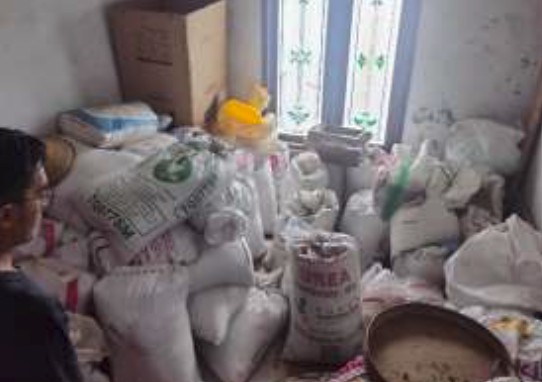Peningkatan Higiene dan Sanitasi Produk UMKM Melalui Implementasi GMP dan SSOP (Studi Kasus : UMKM The Real Kopi Tempur)
Abstract
This study aims to evaluate the implementation of Good Manufacturing Practices (GMP) and Sanitation Standard Operating Procedures (SSOP) at The Real Kopi Tempur MSME in Jepara Regency. The research employed methods including observation, interviews, and field documentation, which were analyzed using Gap Analysis, Root Cause Analysis (RCA), and the 5W+1H method to formulate corrective recommendations. The observation results show that the implementation of GMP and SSOP has not yet met the established standards, especially in areas such as production environment cleanliness, sanitation facilities, documentation, and employee training. Issues identified include unclean surroundings, ventilation without protective screens, lack of cleaning schedules, and insufficient monitoring of personal protective equipment (PPE) usage. Additionally, there were no water quality testing records and no structured cleaning documentation. Root cause analysis revealed that the main obstacles stem from limited awareness of hygiene and sanitation importance, financial constraints, and the absence of structured documentation systems. The study concludes that a comprehensive and gradual improvement is required to help the MSME comply with food safety standards.

Copyright (c) 2025 Muhammad Raid Al Abrar, Novi Marlyana (Author)

This work is licensed under a Creative Commons Attribution 4.0 International License.
Padma (Jurnal Pengabdian Kepada Masyarakat) accepts manuscripts that have not been published elsewhere and are not under consideration for publication by other print or electronic media. Authors retain copyright and grant the journal right of first publication with the work simultaneously licensed under a Creative Commons BY-NC License that allows others to share the work with an acknowledgment of the work's authorship and initial publication in this journal.
Authors are able to enter into separate, additional contractual arrangements for the non-exclusive distribution of the journal's published version of the work (eg, post it to an institutional repository, in a journal or publish it in a book), with an acknowledgment of its initial publication in this journal.
License to Publish
The non-commercial use of the article will be governed by the Attribution-NonCommercial 4.0 International (CC BY-NC 4.0). The author hereby grants Padma (Jurnal Pengabdian Kepada Masyarakat) an exclusive publishing and distribution license in the manuscript include tables, illustrations or other material submitted for publication as part of the manuscript (the “Article”) in print, electronic and all other media (whether now known or later developed), in any form, in all languages, throughout the world, for the full term of copyright, and the right to license others to do the same, effective when the article is accepted for publication. This license includes the right to enforce the rights granted hereunder against third parties.







